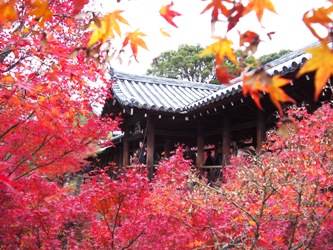Japanese Government Scholarship
◆My Experience in Japan as Japanese government scholarship student (Ph.D. degree)
Techong Singeo-Sugino

(Dr. Singeo-Sugino completed a doctoral degree from University of Ryukyu in Japan through the Japanese Government Scholarship and came back to Palau in April 2013)
If you’re contemplating to study abroad in Japan, this short excerpt is intended for you. It is by no means empirical, nor does it attempt collective representation, instead it merely conveys my personal observations. If it helps you in some way, I’m very glad and if it doesn’t please pass it on to whomever you think may find it useful!
I recently completed a doctoral degree from the University of the Ryukyus’s faculty of medicine in Okinawa Japan, as a monbukagakusho (Ministry of Education, Culture, Sports, Science and Technology) scholarship recipient. There is much to share regarding both academic and social life but since I have but a page, the following are what I believe to be most useful for an aspiring applicant to the graduate or research program.
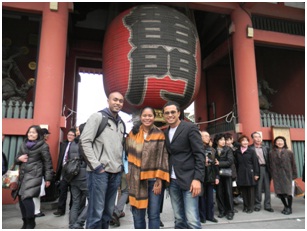
First on the very top of my list is learning the common language of the people. This of course is not a priority requirement for graduate students; however it can be of tremendous value in facilitating a smooth transition into the complexities of the Japanese education system and social life. Among my international student friends, there were those who engaged in research specialties but also took time to learn Japanese; then there were those who opted strictly to research activities. Overtime I observed that those who made extra effort to acquire some language capacity were more likely to have a marked appreciation, a pleasant and fulfilling experience both academically and socially. I suspect the reason behind this lies in the potential opportunity for a meaningful cross cultural exchange which can be uplifting and gainfully beneficial in the long-term.
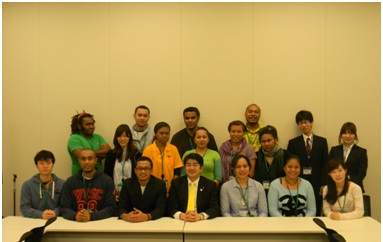
Second on my list is the gravity of importance in establishing a strong working relationship with one’s research advisor/professor. It’s almost inherent and often times not reiterated enough, so I’ll silently scream its significance with these written words. The dynamics of the “sensei-gakusei” (teacher-student) or “senpai-kohai” (senior-junior) relationship are generally ingrained, largely reinforced and deemed uniquely Japanese. It was often with good humor and perhaps some degree of bitterness that graduate students spoke amongst themselves the necessity to worship their research advisors in the same manner gods are revered. In a similar vein the nature of the “senpai-kohai” relationship used within student groups generally posits that a new student regardless of age or status would assume the position of kohai, a subordinate to the higher ranking senpai, usually students with longer standing positions. It is especially adhered and strictly applied among Japanese students for it determines the general conduct of behavior and communication. I was fortunate to have senpais who were relatively kind and helpful both academically and socially, unlike some of my friends with senpais who were less agreeable, ill-tempered, and could make one’s life utterly difficult. Indeed with time, one naturally elevates to senpai status, charged with the well being of new students therefore it is in your best interest to learn the roles and dynamics of this relationship.
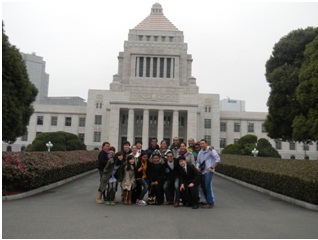
Third on my list is simply to stress the importance of a general approach that utilizes the attitude of openness and the mindset of flexibility. Understandably, the Japanese system of education along with its cultural practices and social institutions can at times be unfamiliar and overwhelming especially for applicants with more western orientation. As a result students often become disheartened and eventually exit prematurely. To avoid this pitfall which almost happened to me and unfortunately to some of my friends, I made immediate adjustments to adopt a less rigid mindset that was open, malleable, and perhaps more suitable to environmental conditions that seem more foreign than familiar.
As a final note, I can say with almost complete certainty that you can expect to eat some of the finest and healthiest food items with the highest degree of quality generally characteristic of the Japanese food culture. Similarly, you can also expect to encounter a nearly perfect balance between cultural preservation and modern technological advancement. Lastly, you can expect to experience a highly regarded model of quality customer service and professionalism.
As you explore your options for further academic pursuits, I sincerely encourage you to consider the monbukagakusho scholarship for graduate students. I trust you’ll make great academic gains or better yet you just might encounter the most defining cross cultural experience of your life. Feel free to contact me via Japan Embassy for more information. Ganbatte!
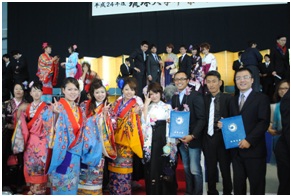
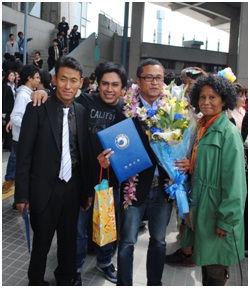
©Embassy of Japan in the Republic of Palau
P.O. Box 6050 Koror, Republic of Palau 96940

